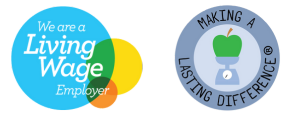Everyone, everywhere, has basic rights and freedoms which are needed to live together with dignity based on a common humanity. These human rights are secured in law. The law applies to everyone equally and provides an important means of protection for the most vulnerable in our communities, including those who use independent advocacy services. It sets out the duties owed by those responsible for upholding human rights and the outcomes people are entitled to expect as a matter of right.
Independent advocacy plays an integral role in helping to ensure that an individual’s human rights are respected by offering access to justice on an equal and non-discriminatory basis with others. It does this by addressing issues of autonomy and choice, and by supporting an individual’s voice and opinions to be meaningfully heard. The Principles, Standards & Code of Best Practice for independent advocacy are based on an approach that promotes and advocates human rights. Independent advocacy helps statutory services to practise a human rights-based approach.
SIAA has published two key documents that provide further information on the link between independent advocacy and human rights;
- ‘Incorporation of Right to Independent Advocacy Briefing‘ – a briefing produced in partnership with Human Rights Consortium Scotland outlining the case for incorporation of the right to independent advocacy into Scots law.
- ‘Advocating for Human Rights‘ – a guide produced in partnership with the Scottish Human Rights Commission for independent advocates looking at how to effectively support people to secure their rights.
The internationally recognised PANEL Principles are of fundamental importance in applying a human rights-based approach in the practice of independent advocacy. They are a practical tool for describing what a human rights-based approach looks like in practice
The five PANEL principles are:
Participation
Everyone has the right to participate in decisions which affect their human rights. Participation must be active, free, meaningful and give attention to issues of accessibility, including access to information in a form and a language which can be understood.
The provision of independent advocacy is fundamentally about enabling people who may require help in speaking for themselves to participate in decisions that affect them, whether they be about healthcare, social activities, or legal processes.
Accountability
Accountability requires effective monitoring of human rights standards as well as effective remedies for human rights breaches. For accountability to be effective there must be appropriate laws, policies, institutions, administrative procedures, and mechanisms of redress in order to secure human rights.
Independent advocacy helps people to access a wide range of accountability mechanisms such as complaints processes, courts, and tribunals.
Non-discrimination and equality
A human rights-based approach means that all forms of discrimination in the realisation of rights must be prohibited, prevented, and eliminated. It also requires the prioritisation of those in the most marginalised situations who face the biggest barriers to realising their rights.
There are times when those in need of independent advocacy can be amongst some of the most vulnerable and marginalised people in our society – a human rights-based approach means we must pay particular attention to the protection and realisation of their rights. Sometimes, because of their support needs, people are discriminated against in access to services or in opportunities to express their views. People also have different identities based on their gender, ethnicity, religion, and many other grounds. Each of these identities should be respected when receiving any services, including independent advocacy.
Empowerment
A human rights-based approach means that individuals and communities should know their rights. It also means that they should be fully supported to participate in the development of policy and practices which affect their lives and to claim rights where necessary.
Independent advocacy plays an essential role in helping people to know and understand their rights, participate in legal processes, and hold decision makers to account.
Legality
A human rights-based approach requires the recognition of rights as legally enforceable entitlements and is linked in with national and international human rights law.
All public bodies in Scotland must be sure that their practices and procedures are grounded in human rights thinking. Under the law they must not breach the human rights of anyone. The situations which independent advocacy supports people are grounded in legally enforceable human rights, such as the right to private and family life, the right to liberty and the right to a fair trial. They are also grounded in non-legally enforceable, but internationally agreed human rights such as the right to health, the right to education and the right to an adequate standard of living. Making the explicit connection to human rights helps back up representations made on behalf of people.
Independent advocates are human rights defenders. Independent advocacy is built on enabling people to know and claim their rights and on increasing the ability and accountability of individuals and institutions responsible for respecting, protecting, and fulfilling rights. Within the context of independent advocacy, a human rights-based approach is about ensuring that both the standards and the principles of human rights are integrated into procedures and processes, as well as embedded into the day to day running of organisations.
The Scottish Human Rights Commission have an excellent short video about the PANEL principles and how they support a human rights-based approach.

